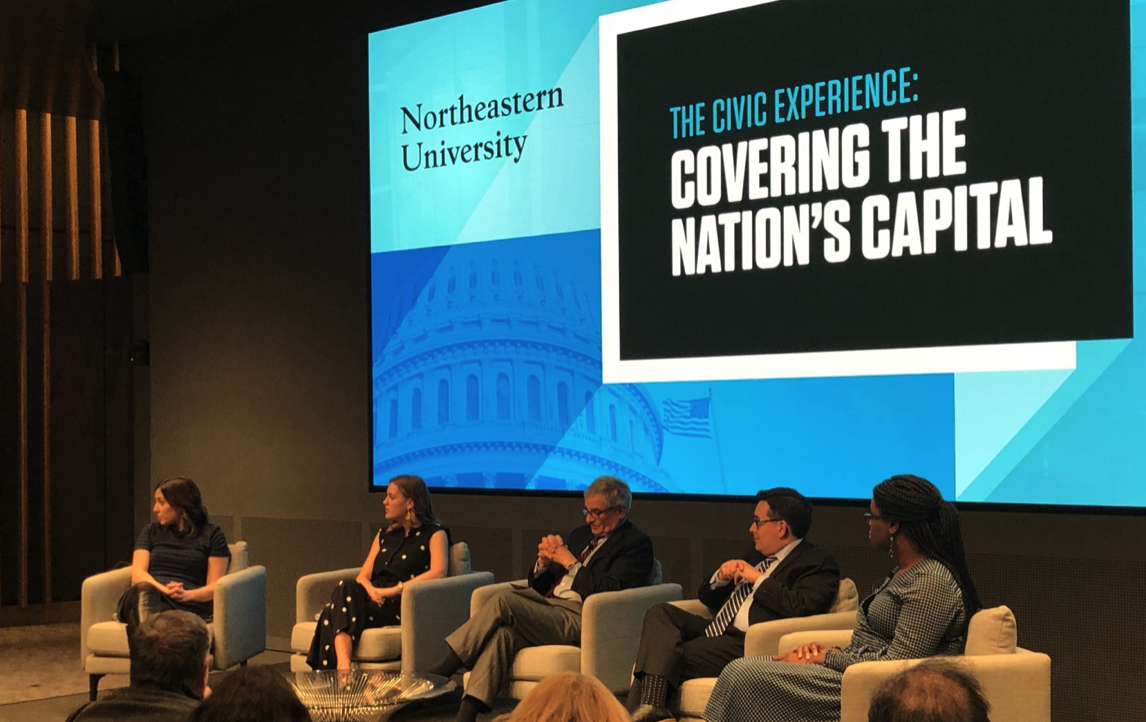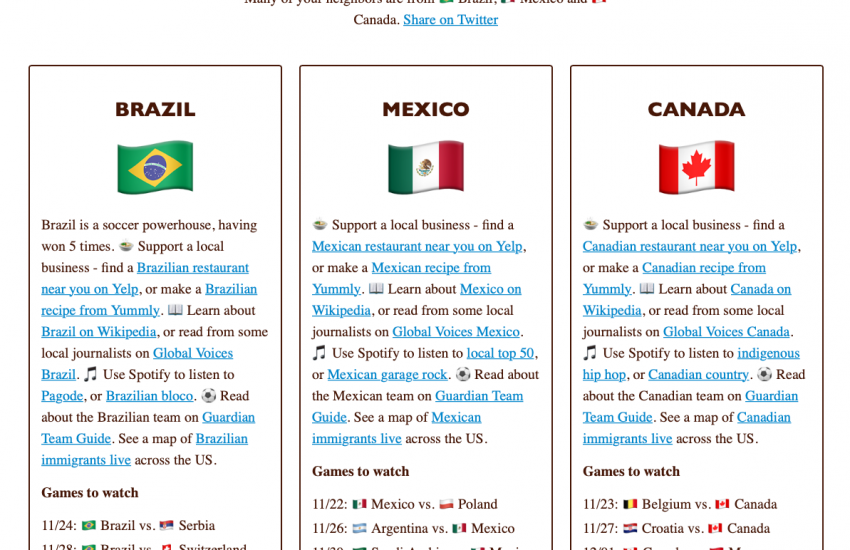How political reporters from Politico, Bloomberg, NBC and CBS are covering the Trump Administration
President Donald Trump hates the media.
Or, at least, that’s how it appears. How else could you justify his insistent attacks on the fourth estate, calling it “fake news” and the “enemy of the people?” And yet, four national politics reporters insist that the president actually loves the media. He relishes in seeing his name in the headlines.
This past Monday, Northeastern University hosted the first of three panel discussions that they’ve dubbed the “The Civic Experience” series. The first, titled “Covering The Nation’s Capital,” saw reporters from four major news outlets speak on what it’s like to cover politics from the nation’s capital.
Hallie Jackson of NBC News, Ed O’Keefe of CBS News, Gabby Orr of Politico, and Arit John of Bloomberg News appeared on the panel, moderated by Pulitzer Prize-winning journalist David Shribman, who steered the four speakers through an array of questions about what it’s like to be a political reporter under the current administration. Conversation around Trump’s ire toward reporters dominated the conversation.
Yet, from what the panel had to say, Trump doesn’t actually hate the media. It’s more that Trump doesn’t like how they’ve covering him.
“He obviously doesn’t hate the media like the way he talks about how he does because he watches my show,” Jackson said. “He doesn’t like the coverage, but he loves when he’s in the headlines.”
Trump might live to see his name in lights, but when it comes to reporters getting access, it can be difficult. According to a few of the panelists, this administration holds fewer press briefings than prior administrations. And when those briefings do happen, the information provided by press secretary Sarah Huckabee Sanders can’t be taken as fact. That’s because, in some cases, a rogue tweet from the president may refute what she says, or she’ll provide multiple answers to the same question, depending on where and when a reporter asks it.
“Sometimes her answers behind the scenes differ from what she said in the briefings,” Orr said. “Whatever she says to us in a press briefing we can’t just go back and take it as gospel.”
That means White House reporters need to do more reporting and fact-checking than ever before. It’s no secret how frequently Trump has been caught in a lie. That’s made the job harder and work hours longer, the panelists said.
Jackson said she has a rule where she wants to be in bed by 10 p.m. If something happens after that, her editors know that they need to alert her. O’Keefe, who transitioned from print to broadcast media in the last year, said being on TV actually gives him more time than when he was a print reporter because he was constantly having to update stories and was a single-man operation. On TV, he has a team of producers. But even with this newfound “down time,” O’Keefe still needs to set boundaries to unplug and recharge.
“My job as a dad with two young kids is to preserve Saturdays,” he said.
While the Trump administration has made covering the White House a near 24/7 job, it’s also made the perception of a journalist complicated. The panelists agreed that trust in the media goes up and down every decade or so and right now it’s at a low point. Orr said her parents, who are strong Trump supporters, always joke to her about reporting “fake news,” to which she will always refute, “Why would I spend so much time and energy reporting something that isn’t true?”
Meanwhile, Trump’s rallies are also difficult to report on. It’s not uncommon for reports to have insults hurled in their direction.
“The energy from his crowds is just not nice,” John said. “Before an event starts, they’ll be really nice, answer your questions and then as soon as he starts and says ‘fake news,’ they’ll turn around and scream at you.”
Still, it’s important to note that every president has had issues with the media. O’Keefe acknowledged that even Barack Obama could be difficult to deal with when he didn’t agree with something written or reported about him or his administration. It’s something that simply comes with the beat.





